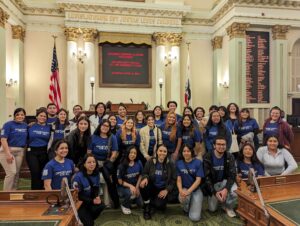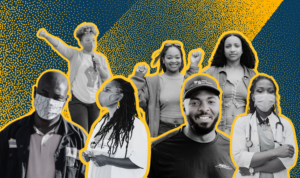STATEMENT ON ANTI-ASIAN VIOLENCE
The UCLA Labor Center condemns the March 16th brutal murders of eight people in Atlanta, Georgia, including six Asian American women. This tragedy has been the most recent case of a long string of violent attacks on Asian Americans throughout the country. Last year, there were at least 3,800 racially motivated incidents targeting Asian Americans in all 50 states.
Anti-Asian violence is not a new phenomenon, but has deep roots in white supremacy and racism within U.S. society. Attacks on Asian American women in particular have a long and sordid history, perpetuated by negative media images and misogyny.
The latest rise in anti-Asian violence has been encouraged by the former Trump Administration, who falsely blamed China and Asian people for the Covid-19 pandemic. Trump, and other right-wing political leaders and media spokespeople have referred to Covid-19 as the “China Virus” and “Kung Flu.”
The former Trump administration has emboldened racist vigilantes and bigoted hate groups through their inflammatory rhetoric and discriminatory policies. The Georgia killings are only the latest in a long history of violence and racial terror against Black, Immigrant, and People of Color communities. These policies have included the caging of children along the U.S. Mexico border, the banning of Muslims from entering the U.S., and the refusal to address police killings of unarmed black women and men. Trump encouraged the violent white supremacist insurrection at the U.S. Capitol on January 6, 2021.
The UCLA Labor Center calls for racial justice and racial healing. As a university-based institution, the Labor Center believes that educators have a special role to play in educating students on the historic contributions of communities of color, and to challenge white supremacist ideology.
The UCLA Labor Center stands in solidarity with the Asian Pacific American community during this critical time, and will work to eradicate racial and gender inequality through our research, teaching, and public service work.


